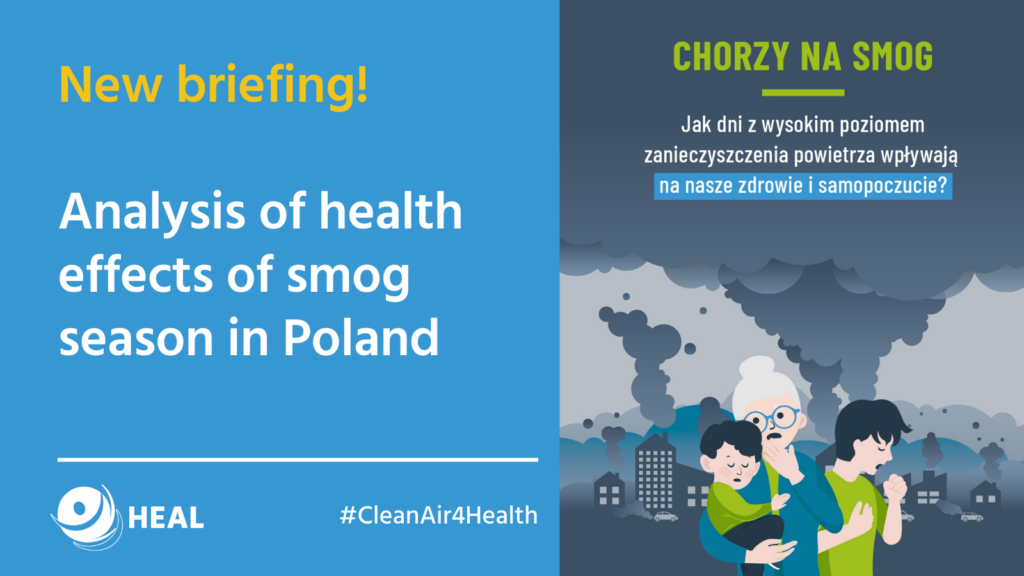Help us influence policymakers in Poland HEAL has been active in Poland for the past…
Today, HEAL Poland has published an analysis of particulate matter air pollution in Poland during the 2022/23 heating season, and the associated health impacts of short-term exposure to air pollution. The analysis, entitled Sick of smog. The effects of days with high levels of air pollution shows that exposure to air pollution is a health problem not only for a long term, but also already at short intervals.
 Scientific research demonstrates that short-term exposure to high levels of pollution does not “train” our immune system, as claimed by some Polish policy makers,. Even a one-day-long exposure to smog carries the risk of developing, among others, headaches, concentration problems, depressed mood, allergic symptoms, breathing problems, pneumonia and bronchitis. Short high air pollution can even lead to (fatal) heart attacks, strokes and an increased number of hospitalisations and need for medication.
Scientific research demonstrates that short-term exposure to high levels of pollution does not “train” our immune system, as claimed by some Polish policy makers,. Even a one-day-long exposure to smog carries the risk of developing, among others, headaches, concentration problems, depressed mood, allergic symptoms, breathing problems, pneumonia and bronchitis. Short high air pollution can even lead to (fatal) heart attacks, strokes and an increased number of hospitalisations and need for medication.
HEAL’s new analysis shows that in the 2022/23 heating season in Poland, air quality in the majority of the 211 Polish towns considered was higher than recommended by the World Health Organization (WHO).
The worst air pollution on “smog days” (days when average daily concentration of pollution exceeds WHO recommended guidelines) was recorded in Nowa Ruda, Sucha Beskidzka and Żywiec, lasting 2-3 months – all of them located in coal regions in Southern Poland. The highest average daily concentration of PM10 pollution was almost 5 times higher than the daily WHO recommendation for this pollutant, with Żywiec, Radomsko (close to Bełchatów power plant and open pit mine) and Nowa Ruda at the top of the list.
Due to the ongoing war in Ukraine and restrictions on imports of Russian fuels, the winter of 2022/23 was a particular challenge in terms of ensuring energy security for Poles. As a result, the Polish government suspended a number of regulations limiting the possibility of burning the most emission-intensive fuels in domestic heating installations. In addition, the furnaces could also be fed with waste generating emissions of substances not subject to state monitoring, and at the same time harmful to human health (e.g. dioxins).
The risks of exposure to even brief episodes of high levels of air pollutants require further action at the policy level. Among them, the most urgent are:
- Full alignment of EU (and thus national) legally binding clean air standards to current WHO recommendations,
- Move away from burning coal as quickly as possible and towards low-emission renewable energy and energy savings
- Strengthening public information and alerts, as well as comprehensive monitoring of air pollution levels in Poland.


